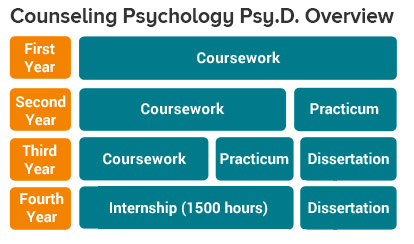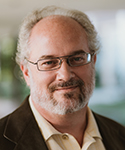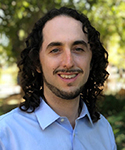Psy.D. in Counseling Psychology
Now Accepting Applications for Fall 2025
This program develops psychologists who are skilled in a broad range of clinical work, including psychotherapy, assessment, supervision, and consultation, as well as integrative approaches to health, which are informed by depth psychological perspectives through a psychodynamic lens.
Request More InformationPsy.D. in Counseling Psychology with Emphasis in Depth Psychology
What is the Psy.D. in Counseling Psychology?
State Authorization: Click to View States Pacifica is Authorized to Enroll By Program.
Pacifica’s Psy.D. Program in Counseling Psychology offers a uniquely immersive, experiential and relationally designed doctoral degree in Counseling Psychology designed to prepare graduates for licensure as licensed psychologists. This exciting new program is deeply informed and organized around principles of psychodynamic psychology, and emphasizes psychotherapy practice informed by an appreciation for the importance of the unconscious life in the individual and in communities, as well as an emphasis on the deeply relational quality of human psychology, both as a philosophy of psychotherapeutic intervention and as an organizing principle for the academic program itself. Following a practitioner-scholar model (also called the “Vail model”), this program represents Pacifica’s commitment to grounding the principles of depth psychology in clinical practice within community settings. Its graduates will be prepared to function as licensed psychologists in a variety of applied settings, including private practice, community mental health, substance abuse and dual diagnosis settings, hospital and inpatient settings, the nonprofit and private sectors, and many other professional contexts.
Pacifica trains students toward an integration of broad and general knowledge in applied counseling psychology with research on the unconscious and relational factors that motivate individual and collective behavior. Depth psychology invites a curiosity about the psyche and respect for the diversity and resiliency of the human experience. Interdisciplinary courses exploring literature, mythology, religion, and culture deepen students’ abilities to link collective systems and archetypal themes to sociopolitical issues in the lives of individuals, families, and communities. Although broadly psychodynamic in its orientation, the Psy.D. Program offers particular emphasis in psychotherapeutic training informed by both psychoanalytic and analytic (Jungian) perspectives.
This program develops psychologists who are skilled in a broad range of clinical work, including psychotherapy, assessment, supervision, and consultation, as well as integrative approaches to health, which are informed by depth psychological perspectives through a psychodynamic lens. As a Psy.D. Program, this degree offering is dedicated to educating future psychologists who prefer to focus on applied practice rather than research, although appreciation for and fluency with the language and methodology of research also informs the program, culminating in a doctoral dissertation which represents a unique individual contribution to the established research literature. The emphasis on applied practice is grounded in the program’s clinical training requirements, including progressively advanced supervised experiences in applied settings gained in practicum and pre-doctoral internship.
Download The Information Guide

Contact the Admissions Advisor
- Katherine Bailey, Executive Admissions Advisor
- Phone (call or text): 805-881-1638
- Email address: kbailey@pacifica.edu
The Distinct Training Offered by the Psy.D. Program
The Psy.D. in Counseling Psychology Program’s intensive residential learning sessions on the Lambert Campus, its class cohort configuration, and the engaging beauty of the surroundings all lend themselves to an experience of scholarly and personal development. Throughout the program, students are engaged in experiential learning and collaborative processes during residential sessions on campus. Collaborative learning reflects Pacifica’s team approach to the assessment and treatment of individuals, couples, families, and groups.
The Psy.D. program is rooted in the culture and academic methodology of Pacifica’s long-standing and thriving MA Counseling Psychology Program. As an academic degree, it bridges the rich history of teaching depth psychology with the contemporary world of applied counseling psychology. This practical integration emphasizes depth psychological perspectives within current areas of psychological studies such as: relational and intersubjective approaches to psychotherapy; attachment and trauma; evidence-based practices; integrative assessment; interpersonal neurobiology and biopsychosocial approaches to integrative health care; community-based practice approaches; and mental health public policy.
Benefits:
The Psy.D. in Counseling Psychology is designed to develop graduates who are able to:- Develop literacy in the literature and tradition of classical and emerging depth psychology scholarship that is also guided by psychodynamic theory and the humanities.
- Critically explore Jungian scholarship and practice including classical analytical traditions as well as contemporary archetypal and imaginal approaches to psychology and psychotherapy.
- Apply principles of classical and contemporary psychoanalytic theory to the relational process of psychotherapy, including contributions of object relations, self psychology, and intersubjectivity theory.
- Be proficient in theoretical orientations that offer perspective and provide meaning to systemic patterns and human behavior.
- Identify underlying psychological and systemic dynamics of human interaction.
- Apply understanding to case conceptualization assessment and treatment in clinical practice.
- Enhance client functioning and well-being via multiculturally sensitive referrals and collaborative treatment team consultations.
- Assess, diagnose, and treat the symptoms and characteristics of behavioral addictions, substance use, and dependence.
- Apply evidence based assessment procedures to client cases and demonstrate awareness of community mental health and diversity-related considerations.
- Apply current legal and ethical standards and guidelines while working with diverse populations and demonstrate their knowledge and application in scholarly work and supervised practicum as they pertain to marriage and family therapy and professional clinical counseling.
- Identify and integrate systemic depth psychological perspectives of human interaction and demonstrate competence in the field of professional clinical counseling.
- Demonstrate an evolving capacity to self-assess and articulate one’s own strengths and organizing principles.
- Understand individual, systemic, community, political, and biologic aspects of diversity and demonstrate knowledge and respect for diversity.
- Participate in advanced practicum seminars conducted as case colloquia that engage psychoanalytic, Jungian/ archetypal/imaginal, and other evidence based approaches to clinical practice.
“The process of psychotherapy mirrors the story of the emergence of the individual psyche within the relational field of intersubjective reality: the internal, ineffable, and primal realities of the emerging self become actualized in the presence of relationship. To be seen by others is to become real. As a healing art, psychotherapy must be an emotionally honest and relationally charged act of co-creation.”
Chair & Faculty
The faculty members of Pacifica’s Psy.D. Counseling Psychology program bring a passion for education and a wealth of real-world experience into the classroom. As leaders in their fields, the members of Pacifica’s faculty include authors of international acclaim, renowned lecturers, practicing psychologists, and certified analysts. All Counseling faculty members share a passion for transformative forms of education and are dedicated to working with adult learners. To learn more about the faculty in the Psy.D. Program in Counseling Psychology, read the individual descriptions below.
Request Information
Learn MoreProgram FAQs
What is a PsyD?
PsyD stands for “doctor of psychology” and it is one of the three doctoral degrees commonly earned by licensed psychologists (PhD, EdD, and PsyD).
How is the PsyD different from the PhD in psychology?
The PsyD is based on the so-called “Vail Model” or scholar-practitioner model articulated at the 1973 Vail Conference on Professional Training in Psychology. It was designed to represent doctoral degrees which are focused on clinical practice rather than research, and to address the academic and training requirements of such a focus. In practice, psychologists with the PsyD, PhD, and EdD degrees show a lot of overlap in terms of what they do professionally.
Can a PsyD qualify me to apply for licensure as a psychologist?
Yes, the PsyD degree is the equivalent to the PhD in satisfying the educational requirements for licensure as a psychologist in California and throughout the United States.
Is a PsyD called a “doctor”?
Yes, as with the PhD degree, PsyD graduates are entitled to the “Doctor” form of address.
What is “Counseling Psychology”?
Counseling Psychology is a health service provider specialization within professional psychology focusing on assessing and addressing how individuals function both personally and in interpersonal and social contexts, across the life span. Compared to programs focusing on Clinical Psychology, Counseling Psychology programs tend to focus more on client-centered and Humanistic considerations in normal populations rather than on psychopathology. However, there is a lot of overlap between what graduates of counseling versus clinical programs do professionally, and a graduate’s career may end up encompassing both perspectives over time.
What is the theoretical orientation of the program?
The PsyD Program is organized around principles of depth psychology, including an emphasis on unconscious motivations of behavior, psychodynamic principles of personality development in the context of social and relational contexts, the centrality of attachment, affect tolerance, and relational capacities, the impact of contextual factors surrounding the intersection of culture, race, gender identity, and other individual differences, and the clinical importance of intersubjective and relational qualities in assessment and treatment. The program includes separate and distinct course sequences focusing on psychoanalytic and analytic (Jungian) theory.
How long is the PsyD Program?
The PsyD is designed to be completed in four years total: three years of curriculum, including a dissertation, plus one year of pre-doctoral internship.
Is clinical training required?
Yes. The PsyD will require students to complete 1000 hours of practicum, generally during years two and three of the program, followed by 1500 hours of internship, generally taking up the fourth year of the program.
How is the academic calendar arranged?
 The PsyD program will hold classes on a quarter system, with three sessions per quarter comprising three-day sessions (Friday morning through Sunday afternoon) approximately once each month during Fall, Winter, and Spring quarters, and one seven-day Summer quarter session, over a period of three years. The fourth year does not include attendance of classes on campus, although students typically continue to work on their dissertations during this time.
The PsyD program will hold classes on a quarter system, with three sessions per quarter comprising three-day sessions (Friday morning through Sunday afternoon) approximately once each month during Fall, Winter, and Spring quarters, and one seven-day Summer quarter session, over a period of three years. The fourth year does not include attendance of classes on campus, although students typically continue to work on their dissertations during this time. What is the relationship between Pacifica’s MA in Counseling Psychology and the PsyD in Counseling Psychology?
Both the MA and the PsyD programs are administered in a common administrative structure through Pacifica’s Department of Counseling Psychology. However, the two degree programs are separate curricula with their own admissions and graduation requirements. Graduates of the MA Counseling Psychology Program must apply and be accepted into the PsyD Counseling Psychology Program.
What transfer credit opportunities are available for graduates of the MA Counseling Program who wish to enter the PsyD program?
What was the inspiration or impetus for the creation of this program and how is it unique in comparison to what other schools may offer?
Please describe what a typical three-day session is like. What experiential learning and collaborative processes are part of these person sessions?
Please describe the dissertation process.
The dissertation is a time-honored centerpiece of the doctoral education. In the PsyD program, students are asked to take on dissertation topics which represent doctoral level work which contributes meaningfully to the literature of Counseling Psychology, amplified and enriched by perspective afforded by depth psychology and psychodynamic theory. Students begin taking courses related to qualitative and quantitative research in first year, culminating with a Dissertation Development course in Spring of Second Year which marks the official beginning of the dissertation writing process. Students work with a dissertation chair and a dissertation committee to provide guidance, feedback, and encouragement to the student during the dissertation writing process, which is designed to span from Spring of Second Year to the Fourth Year, in which students are concurrently placed on internship. The dissertation writing experience is supported and enriched by a series of Dissertation Completion credits, which reflect the ongoing work with the committee, and Advanced Methods courses which are formal classes held on campus. The process culminates in a dissertation defense, in which the finished manuscript is presented to the committee and others who may attend the moment.
Scholarships
Jung/Freud Clinical Scholarship Offered to newly admitted students entering into Psy.D. Counseling Psychology Program.
Education Assistance The Education Assistance Scholarship is sponsored by Pacifica Graduate Institute and offered to new and returning students based on extreme financial hardship and strong academic excellence.Yellow Ribbon Matching Scholarship Pacifica Graduate Institute is pleased to announce that we have entered into an agreement with the Veteran’s Administration in support of veterans continuing their education under the Post 9/11 GI Bill.
For more information visit Pacifica Scholarship Programs.
Curriculum Overview
Counseling Psychology Psy.D. classes occur in three-day sessions (Friday morning through Sunday afternoon) approximately once each month during Fall, Winter, and Spring quarters, with a seven-day Summer session, over a period of three years. Pre-doctoral internship is expected to take place during the fourth year of training in the program, following the completion of coursework, qualifying and comprehensive exam, and significant progress toward dissertation.
Selected Courses have web-enhanced learning components. The curriculum is not intended to meet all the requirements of each state for licensure in clinical psychology. The curriculum may vary depending upon changing academic needs.
First Year
Second Year
Third Year
- Social Foundations of Human Behavior II - PSY 801, 3 units
- Psychotherapy Practicum Seminar III - PSY 765, 1 unit
- Advanced Research Methods in Counseling Psychology II - PSY 957, 2 units
- Post-Jungian Based Psychotherapy - PSY 815, 2 units
- Dissertation Completion - PSY 958C, 2 units
- Comprehensive Portfolio - PSY 989, 0 units
Fourth Year
- Pre-Doctoral Internship, 0 units
- Dissertation Completion V - PSY 959A, 3 units
- Dissertation Completion VI - PSY 959B, 3 units
Requirements for Graduation
Degree Requirements for Graduation
- Students must complete a total of 106 quarter units to fulfill the unit requirement for the degree.
- A minimum grade of “B” is required in each completed course. A cumulative grade point average of 3.0 must be maintained.
- Students must meet attendance requirements as articulated in the Student Handbook.
- In order to proceed to the second and third years of coursework, students must pass the First and Second Year Assessment for Program Advancement, which encompass a comprehensive review of coursework, annual evaluations, advancement toward clinical practicum training goals, writing skills and readiness to conduct research.
- Students must successfully pass the Comprehensive Portfolio.
- Students must submit and defend an original dissertation accepted by the faculty.
- Students are required to complete a minimum 1,000 hours of practicum and 1,500 hours of internship.
- Students are required to complete a total of 60 hours of personal therapy.
- Students must comply with all the policies and procedures articulated in the Student, Dissertation, and Clinical Handbooks.
First and Second Year Assessments
During the spring quarter of a student’s first year, the faculty will assess each student’s progress in process skills and readiness to begin a clinical practicum. This process allows the faculty to remain in touch with student progress and to provide timely feedback.Comprehensive Portfolio Assessment
The Comprehensive Exam Portfolio is designed to assess student competencies in the area of each of the Program Domains. Students must pass all components of the Comprehensive Exam Portfolio in order to advance in the Clinical Psychology Program to Dissertation Writing or Internship.Clinical Training
A minimum of 1,000 hours of practicum and 1,500 hours of pre-doctoral internship are required. Students will secure practicum placements in coordination with the Director of Clinical Training. The Program asks students to conduct Practicum I, Practicum II, and Pre-Doctoral Internship training at three separate sites. Students must obtain a pre-doctoral internship in an application process that tends to be more competitive than the practicum process. It is highly recommended that these internships be completed in a multidisciplinary setting offering a variety of training experiences. Pre-doctoral internship is a supervised summative training experience, which integrates academic learning and previous applied clinical training at the practicum level. Upon completion of the academic program, comprehensive portfolio, dissertation, and 1,000 hours of practicum training, students in good standing are required to complete 1,500 hours of pre-doctoral internship training. More on these requirements can be found in the latest PsyD Counseling Clinical Training Handbook as what is listed here is not exhaustive. Candidates for internship must demonstrate readiness to apply for internship to the Director of Clinical Training.Preparation for Clinical Psychology Licensure
This curriculum may not meet all the requirements of each state for licensure in clinical psychology. Students seeking licensure in California will acquire regional accredited doctoral training qualifying them to pursue licensure as a clinical psychologist in California; however because requirements do change, students are responsible for remaining aware of current licensure regulations. Other students may need to meet additional licensure requirements in their home states, and are likewise responsible for knowing their applicable state licensure requirements.Enroll Today
Apply NowFor information regarding this program please contact the Office of Admissions at 805.879.7305, or at applicant@pacifica.edu.
All of Pacifica Graduate lnstitute’s degree programs are accredited by the Western Association of School and Colleges (WASC) and federal financial aid is available for those who qualify.
Pacifica’s doctoral programs in Counseling Psychology are not accredited by the American Psychological Association.






























